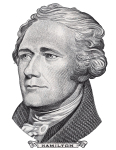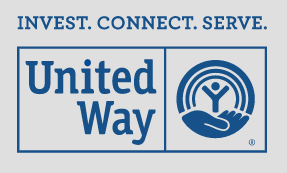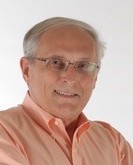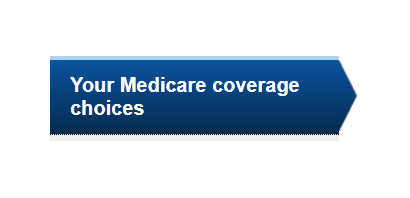United Way of the Coastal Empire and the Edel Caregiver Institute-Hospice Savannah
On Tuesday, March 19, Al Holzinger, volunteer with the United Way, and Jamey Espina, with Hospice Savannah, spoke at the Hamiltons. It was an extremely informative and moving presentation.
Al has been a volunteer with the United Way of the Coastal Empire for six years. He currently chairs Investment Panels on Academic Success and Youth Development. He spoke of several things that make the United Way unique. First, in 1955, a Savannah philanthropist, Hershel Jenkins, bequeathed the United Way a building downtown that the United Way still occupies. He also created a Trust that funds virtually all the United Way’s expenses. This means that every dollar contributed to the United Way goes directly to programs. Second, its Community Fund and its army of volunteers is its most potent weapon to meet the needs of the community. Priorities in Chatham, Bryan, Liberty, and Effingham counties are determined locally and address the greatest needs. The United Way focuses on Education, Health, and Income Inequality. It funds 87 programs in 50 about 50 not-for-profit organizations. Most of the agencies that are funded are small organizations that the United Way can incubate. All agencies are subject to a rigorous vetting process done by panels of volunteers called Advocates. The vetting includes site visits, reviews of applications and financials, and meeting with program representatives. All funded programs must prove they have achieved what they promised to do. Panels rank each of the programs each year. Only the best is funded. The United Way also provides training and technical support to the agencies to help them achieve their goals and grow. Al said that his work with the United Way was the most profound volunteer experience of his life.
The United Way also sets aside some money for Breakthrough grants, to fund new programs. Hospice Savannah’s Edel Caregiver Institute was the recipient of such a grant. Jamey Espina, currently Vice president of Development and Community Services, gave some background. Some years ago, he concluded that one of the greatest unmet needs in the healthcare field was providing support for unpaid caregivers. Caregivers, frequently providing care for a relative, often experience emotional stress, physical and financial strain, and often develop health challenges of their own. They do not know how to handle the illnesses of their loved one or know what resources are available to them. Jamey went to the management of Hospice Savannah and recommended creating a Caregiver Institute. They were enthusiastic but said that he would have to find a funding source. He applied to the United Way and a grant for a part-time employee was approved. Jamey described in detail how the Institute, now the Edel Caregiver Institute, has evolved and the critical role the United Way has played in the process.
The Institute now supports 900 caregivers. It offers free, specialized caregiver courses, hands-on training on the use of equipment, resource information (available in an app), doctor appointment navigation, disease-specific education, and various types of emotional and physical support. It partners with many area healthcare organizations. Once of its big challenges is education…letting people know that this important resource is available.





